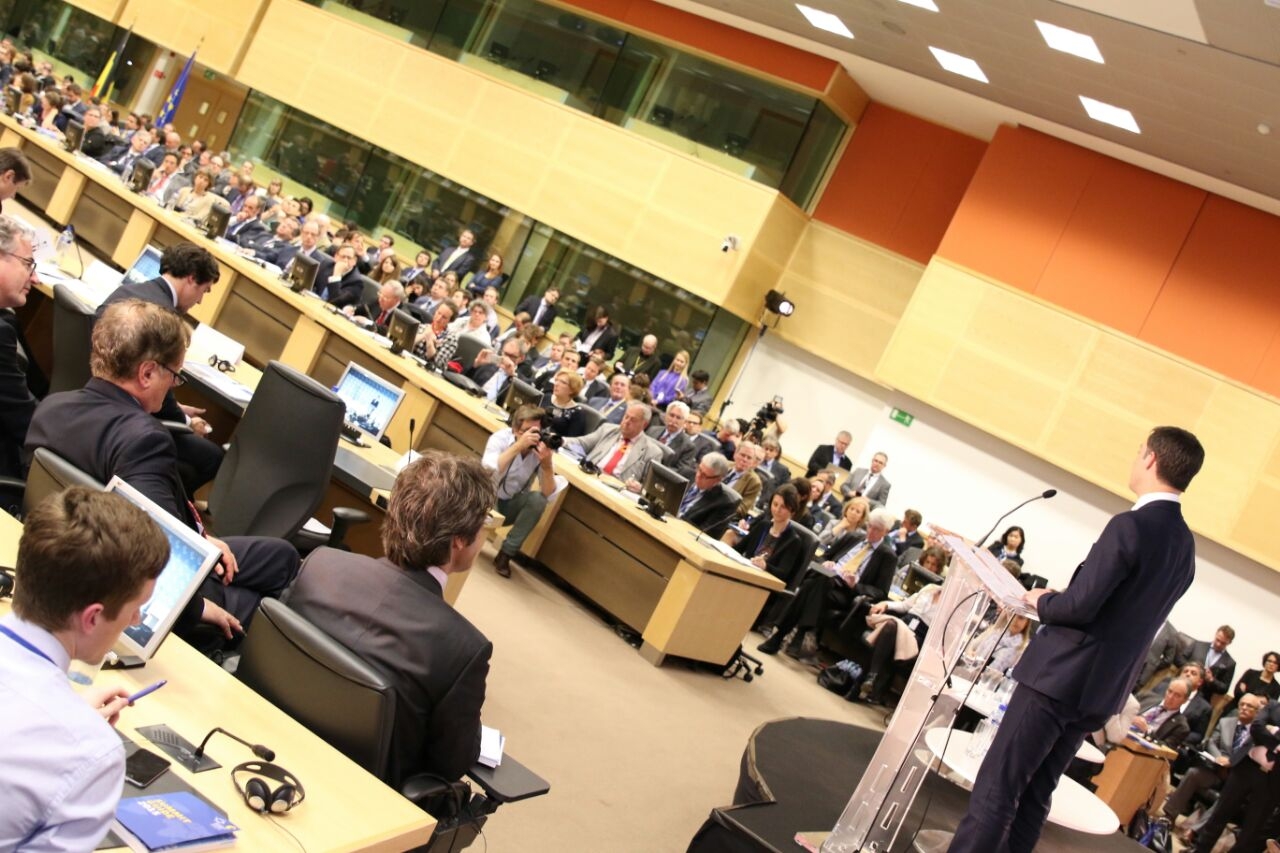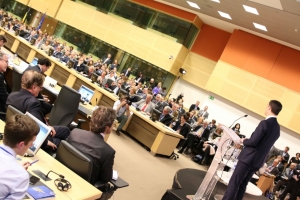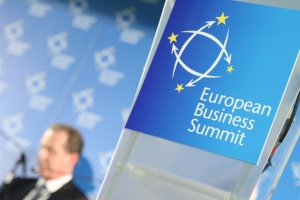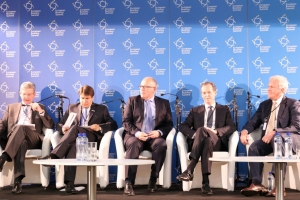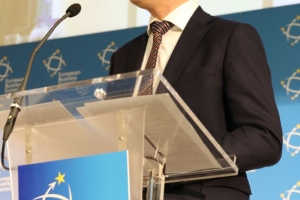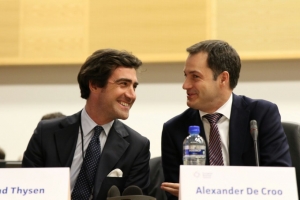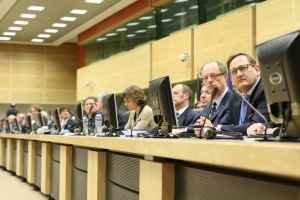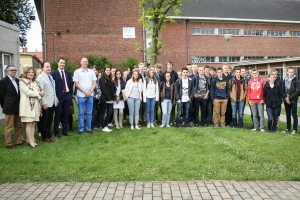EBS2015: 'Europa heeft nood aan een start-up spirit'
Vicepremier en minister van Digitale Agenda en Telecom Alexander De Croo hield dit jaar de openingstoespraak van de European Business Summit in Brussel. Thema van dit jaar is de digitale revolutie. Minister De Croo benadrukte het belang van een flinke portie start-up mentaliteit in Europa.
Excellencies,
Ladies and Gentlemen,
It is a true pleasure to welcome you to Brussels and to this European Business Summit on behalf of the Belgian Government. You really have picked a splendid first day for this Summit. Not only has the European Commission put forward its plans to boost the Digital Single Market, but today also began one of those rare bright sunny spring days – which in Brussels is always temporary – as you may have noticed.
But since we have little impact on the weather, let me stick to the subject we care most about, the one we can really change: the digital direction of our continent.
I know it is a commonplace to state that digital technologies are quickly changing our economy and our society. But for governments and lawmakers, both national and European, - and even for big corporations - we cannot emphasise enough that the digital revolution is responsible for a whole raft of new opportunities.
In the coming years, digitization of our society will be one of the strongest drivers for growth, jobs and well-being. We have to grasp these opportunities with both hands. And to succeed, you had better be ‘a man with a plan’.
In Belgium, we put forward our plan only 2,5 weeks ago. We deliberately opted for a clear-cut and concise action plan, called ‘Digital Belgium’. Our ambitions are strong: with a focused strategy we want Belgium to be one of the top three digital countries in Europe, with 1.000 start-ups to take root in our country and 50.000 new digital jobs created in a variety of sectors.
Of course, this all sounds very nice. Politicians promising jobs and progress.
But how to deliver?
Having started out as a young digital entrepreneur myself, I truly believe our digital strategy should be handled as a start-up.
Of course, you need the ideas and you have to set the course, but you cannot linger in planning limbo. That is also my message to Europe, to European lawmakers, to European businesses and to all my colleagues in European governments: we have to incorporate a start-up mentality in all the digital work we are doing.
We have to embrace great ideas instead of killing them with thick layers of red tape. Invest our energy in getting these great ideas to the public and to the market place in the shortest time possible. Afterwards, there is plenty of time to scale up and to recap.
We need the energy, the vision, the agility of a start-up if we want to innovate and to grow. And yes, that means changing directions from time to time. It also means rewarding risk-taking and giving failure a place in our mind-set. Putting creativity and flexibility first.
And above all: always asking ourselves the question, how can we make a positive impact on people’s lives? Because that’s what the digital revolution should be about: bettering people’s lives through technologies – and not the other way around.
As I have just said, you had better be ‘a man with a plan’ if you want to succeed. But of course Europe would not be Europe if it did not take a different perspective on this wise man’s counsel: the last five years we had Neelie Kroes, a strong-willed ‘woman with a plan’. And now we even have ‘two men with a plan’.
Vice-President Ansip and Commissioner Oettinger today announced their plans for the Digital Single Market. If we want to foster growth and jobs the Digital Single Market is crucial.
For our SME’s a single European market is vital. The greater the market in which SME’s and start-ups can be digitally active, the more opportunities for jobs and growth. With a domestic digital market of more than 500 million people, Europe will really make the difference.
The Commission’s Announcement contains some interesting elements. For example, the emphasis on high-speed networks is indeed key. Every year the volume of mobile traffic doubles, Internet traffic doubles every two to three years. If we want this digital growth to continue, if we want to get ready for the whole new world of the internet-of-things then we need a state-of-the art network infrastructure. That is obvious. This infrastructure is the lifeline of our digital ecosystem.
But at the same time we must not forget to invest in our human capital. The digital revolution means change, profound change. And for some, change means discomfort, sometimes even fear. In the future nine out of ten jobs will require digital skills. If we want tomorrow’s digital world to be inclusive, this means a joint effort, undertaken by governments and businesses. Every European citizen, regardless of age and background, should be able to take advantage of all the digital opportunities that lie ahead.
Europe and the European Commission have an important role to play in this. We will not have a Digital Single Market if we do not have a Digital Skills focus.
And, one last point, let us not forget start-ups. To succeed, we need a start-up spirit at the heart of Europe. But equally important is a vibrant start-up community. Start-ups are the lifeblood of the digital economy. The digital giants of tomorrow are born today. But they will only succeed if we take the path of stimulating and encouraging instead of merely regulating them.
So, let’s be agile.
Let us not restrict tomorrow’s network economy in yesterday’s structures.
Let us kickstart Europe’s digital future today.
There really is no time to waste.
I thank you.

